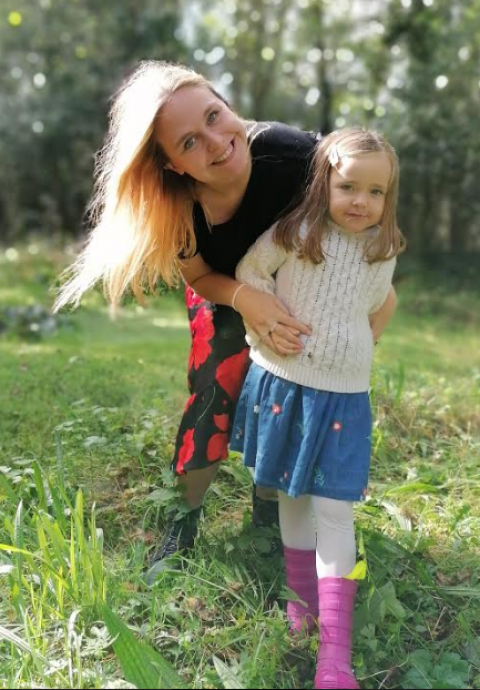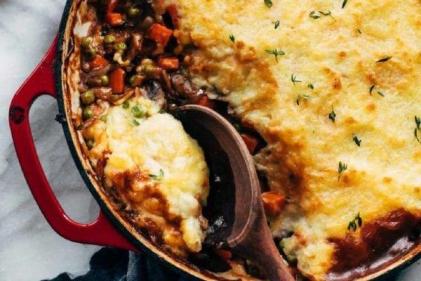Last week, American actor Reese Witherspoon made a plea to other white parents around the world: “Please talk to your children about racism, privilege, bigotry and hate,” she said in her Instagram post. “If you aren’t talking to them, someone else is.”
In Ireland, we tend to be uncomfortable with the uncomfortable. Many of us subconsciously avoid having difficult conversations, especially when it comes to our children. In some situations, it’s good to let your little ones set the pace, giving them just enough info to satisfy their curiosity. This is not one of those times. Now more than ever, talking to our children about what is happening in the world, no matter how horrifying it is, is crucial.
As a white mother of a white child in a very white community, I had no idea where to start. Though Ireland is fast becoming rich in diversity, it is still commonplace for a classroom to be all white. My six-year-old daughter was lucky enough to have attended a culturally rich pre-school, but her current classroom is exactly that: white as can be. Like many Irish parents, I was aware of this and made sure to read her books and show her content with non-white protagonists. Diversity and visibility of people of colour was the aim here and I believe this to be crucial. However, teaching our white children about diversity is simply not enough. It is high time we spoke to them about racism and more importantly, how to fight it.
If you are worried your kids might be too young for this serious topic, here are some stats to start:
- At 3-6 months: babies express a preference based on race, the race of their caregivers (Bar-Haim, 2006)
- At 3 years: children begin to apply stereotypes, categorise people by race, and express racial bias (Winkler, 2009).
- At 5 years: children tend to show the same racial attitudes held by the adults around them. They have already learned to associate groups with higher status than others (Kinzler 2016)
- At 5-7 years: explicit conversations about interracial friendships have shown to dramatically improve their racial attitudes in as little as a single week (Bronson & Merryman, 2009)
These facts show that it is never too early to begin a conversation about race, ethnicity, racial bias and white privilege. So where do we start?
To speak to our non-black kids about racism, we must be willing to put in time and effort. This will not be a five-minute chat before bed. This will be a life-long commitment. The aim is to do as much as we can to ensure that our children will grow up anti-racist in a world where racism is alive and kicking. That the humans we raise will be intolerant of racism, be it systematic, individual or any kind of racism.
First off, we must read and watch the right content for recommendations on how to talk to our kids about racism. Only content made with the input of black people will suffice, however, it is not these people’s jobs to educate us or our children. It is important that we actively go and seek out resources ourselves and learn off our own bat. The following list of resources is a good place to start:
1. The Conscious Kid
This is the number one resource for parents who wish to raise anti-racist children. Made up of educators, this group produces ‘Parenting and Education Resources through a Critical Race Lens’. We recommend signing up to their Patreon. We know money is tight right now, so paying as little as 1US$ a month will be enough to give you access to a treasure trove of rich, diverse content to educate your kids. From book lists to video resources to articles, here are some titles you can expect to gain from:
- 41 Children’s Books to Support Conversations on Race, Racism, and Resistance
- White Privilege: Unpacking the Invisible Knapsack
- Black Boys Matter: 49 Children's Books on Black Boys Experiencing Joy, Being Loved, and Existing in Their Full Humanity
- The Conscious Kid's Interview with Dr Robin DiAngelo: White Fragility and Why It's So Hard for White People to Talk About Racism
2. Avoidance Teaches Ignorance
By Randy Butler, The FreeAtive Nest: "In order to really help our babies and our children, we have to help ourselves. Become the model you wish your child to be, reflect the racial unbiased you wish your child to have, do your research on cultures that exist outside of your culture."
3. These Books Can Help You Explain Racism and Protest to Your Kids
By Jessica Grose, The New York Times: "What is just as important in the long run, especially for non-black parents, is how to keep the conversation about race and racism going when we’re not in a moment of national outrage, and to make sure all children see black people as heroes in a wide range of their own stories, and not just as victims of oppression."
4. How to not raise a racist white kid
By Jennifer Harvey, CNN Health: "Sometimes we even say, "celebrate diversity!" (We say this while failing to notice we're expecting children to be magically immune from the same racism-induced tensions that get in the way of white adults successfully navigating diversity and sustaining interracial relationships)"
5. Why White Parents Need to Do More Than Talk to Their Kids About Racism
By Margaret A. Hagerman, Time Magazine: "Everyday behaviours of white parents also matter: when to lock the car doors, what conversations to have at the dinner table, what books and magazines to have around the house, how to react to news headlines…when to roll one’s eyes, what media to consume, how to respond to overtly racist remarks made by Grandpa at a family dinner."
6. How to Talk to Your Kids About Race, Racism and Police Violence
On Point Podcast, "If we could raise kids in a way that would pre-empt some of these biases by exposing them to a lot, so they're not afraid. Also teaching them about injustice. And about their own privilege."
7. "How do I make sure I'm not raising the next Amy Cooper?"
EmbraceRace Webinar: "A conversation about what the parents of White children, in particular, can do to ensure they're not raising white children who are quick to call the police on Black and Indigenous people and people of colour"
The above resources are a great start. However, we know that if mums and dads strive to be anti-racist, their little ones will follow suit. It is time to implement an active anti-racist policy in your household if you haven't already done so. It is also time to share resources, tips and thoughts with other parents so that we can all stay informed and vigilant when it comes to this crucial fight.







